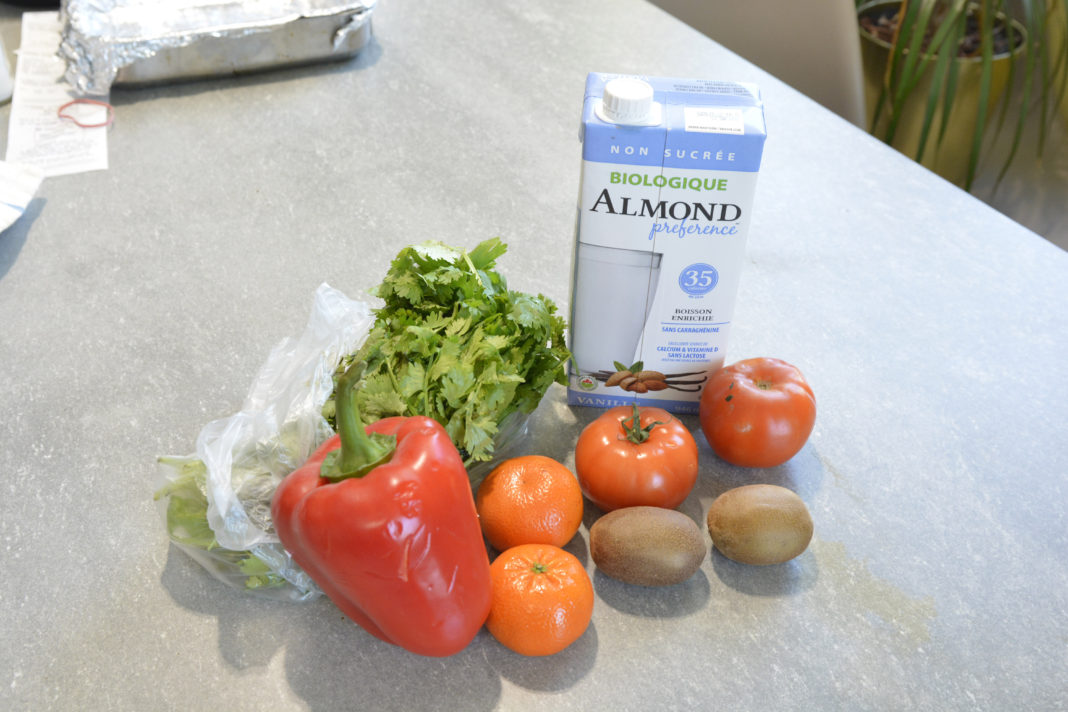As part of Nutrition Month, Sandra Ace has made a point of dispelling nutrition myths that have surfaced on campus over the years.
As a registered dietitian working for Health Services at the University of Waterloo, Ace provides one-on-one nutrition counselling to students by referral. She is also in charge of the campus-wide student nutrition education campaign and various health promotion activities at UW.
Ace has a Bachelor of Science degree in Human Nutrition from Cornell University and worked as a registered dietitian in Toronto for over 30 years. She also has a Masters of Public Health from the University of Waterloo and one of her major areas of study is eating disorders and body image issues.
Here are some of the nutrition myths addressed by Ace in the March Daily Bulletin from University Communications. For each myth, Ace discusses the actual facts as shown by research studies and makes specific recommendations for a healthy lifestyle.
Myth #1: Coconut oil provides more health benefits than other oils.
Fact: There is insufficient evidence that coconut oil helps with weight loss, prevents heart disease, or wards off dementia. Other unsaturated vegetable oils, like canola, olive, sunflower, or soybean oil have the benefit of raising HLD-C (“good” cholesterol) and lowering LDL-C (“bad” cholesterol) and are strongly linked with a lower risk of heart disease, so Ace recommends using these on a daily basis.
Myth #2: Certain foods cause acne.
Fact: Limited observational studies suggest that certain food groups, such as meat and dairy products, may increase the severity of acne, fish intake may decrease the severity, but eating fried or greasy food does not cause acne. Ace recommends eating a balanced diet that includes a variety of nutrient-rich foods for the best results.
Myth #3: Soy foods contain plant estrogens that are bad for your health.
Fact: Soybeans contain isoflavones, weak estrogen-like substances made by plants. Soy products contain many nutrients including protein, fibre, calcium, magnesium, potassium, riboflavin, thiamin, folate, and iron. Studies indicate that there is no increased risk from soy foods in people either with or without breast cancer. Ace recommends eating soy foods but avoiding soy supplements for the time being.
Myth #4: The Internet is a good place to find reliable nutrition advice.
Fact: The Internet may not be a good place to find reliable nutrition advice, and it pays to be skeptical, especially since nowadays anyone can have a website, keep a blog, or write a book. Ace recommends getting one-on-one nutrition advice when available and notes that many extended health insurance programs, including those for eligible UW employees, cover the cost of seeing a registered dietitian.
Myth #5: If you’re busy, meal replacement drinks are a good option for you.
Fact: Meal replacements don’t provide the same health benefits as whole foods and were originally developed as nourishment for people too ill to eat solid foods. Research shows that we benefit more from nutrients found naturally in food. Meal replacements lack beneficial components like phytonutrients (chemical compounds that occur naturally only in plants) and also contain little to no fibre, often causing constipation or increased hunger. According to Ace, the best way to prepare for those busy days is to shop in advance and prepare your food for the week ahead.
Myth #6: All processed foods aren’t healthy and should be avoided at all costs.
Fact: Healthier convenience foods, like canned tuna or salmon, pre-cut fresh veggies, canned lentils, canned diced tomatoes, shredded cheese, eggs, plain frozen fish fillets, frozen vegetables and fruit, 100 per cent whole wheat pasta, and 100 per cent whole grain wraps, and pizza crusts are minimally processed and still retain most or all of a food’s natural nutrients, so you can safely use them to help you make those quick and easy meals. Other nutrient poor, sugar-filled, salty, and saturated fat-laden foods and beverages may put you at a higher risk for many diseases including diabetes, heart disease, dementia, and some types of cancer. Ace recommends avoiding them.
Myth #7: Eating disorders affect mainly teenage girls.
Fact: Eating disorders are life-threatening and have the highest mortality rate of any mental illness. They can also affect anyone of any age group, cultural background, or socioeconomic group, regardless of gender. Ace says that eating disorders are treatable and full recovery is possible but recommends seeking help as soon as possible.
Photo above taken by Ju Hyun Kim
































